What is the velocity of the Earth?

"The Day the Earth Stood
Still" may be a great title for a movie, but
it certainly doesn't have any bearing in reality. While an evening of
stargazing may give you the impression that all the world is still, the
truth is that the Earth is always in
motion.
The gravitational pull between the Earth and Sun causes the Earth to
orbit the Sun at a velocity of 29.8 km/sec. At the same time, the Earth
also rotates on its axis causing the
daily cycle of day and night. This "rotational velocity" is
approximately .47 km/sec.
This means that at the same time we're hurdling through space at
nearly 67,000 mph, we're also spinning at over 1000
mph! Whew! Almost makes you dizzy, doesn't it?
Submitted by Arthur
(August 6, 1997)
You might also be interested in:
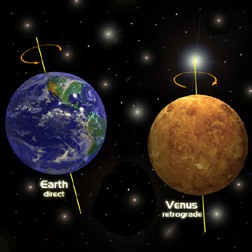
It depends on what kind of motion you are talking about. When seen from the north pole of the celestial sphere all planets orbit around the Sun in a counter-clockwise or direct path. Most planets also
...more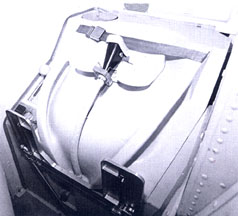
Almost everyone has a question or two about living in space. What do astronauts do in space? How do they do everyday things like eat, sleep and go to the bathroom? Well, this is our attempt to answer
...more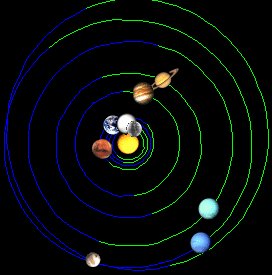
There is a really neat internet program called Solar System Live that shows the position of all of the planets and the Sun for any given day. If you go to that page, you'll see an image similar to the
...more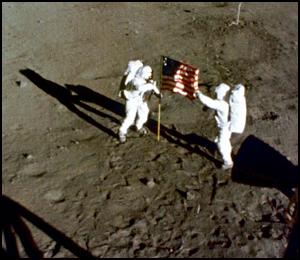
The picture of the American Flag (the one put there by the Apollo astronauts) is waving (or straight out) in the wind. How could that be possible if there is no atmosphere on the Moon? Was it some sort
...more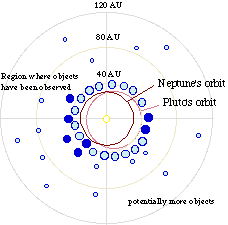
I was wondering if there is a new planet? Are there planets (a tenth planet?) after Pluto belonging to our solar system? What are the names of the new planets discovered in the solar system? Are there
...more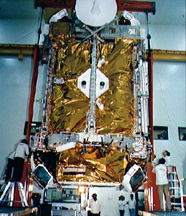
If that is so, the energy released during the Big Bang must have created many such black holes. Therefore most of the Energy of the Big bang must have disappeared in that form. Then how did the Universe
...more













